riverbp
Network of river basins / Meetings
CAREC and USAID Help Farmers Improve their Harvest
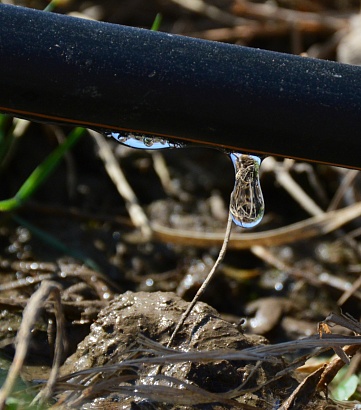
Shyryn Badalov, a farmer from South Kazakhstan started his own agricultural farm in 2006. The favorable climate in this part of Kazakhstan allows farmers in the region to cultivate fruits and vegetables and Shyryn grows several different apple varieties. With more than 30 years of professional agricultural experience, Shyryn was sure that he could produce as much as 20 tons of apples per hectare, but as the years went by, he was still producing less than 10 tons. Profit from the reduced harvest didn’t provide him with enough income to adequately support his family or educate his children. “I was in despair because, as a professional farmer, I knew that the land I own is fertile; but somehow I could never get enough harvest to sustain my family,” says Shyryn.
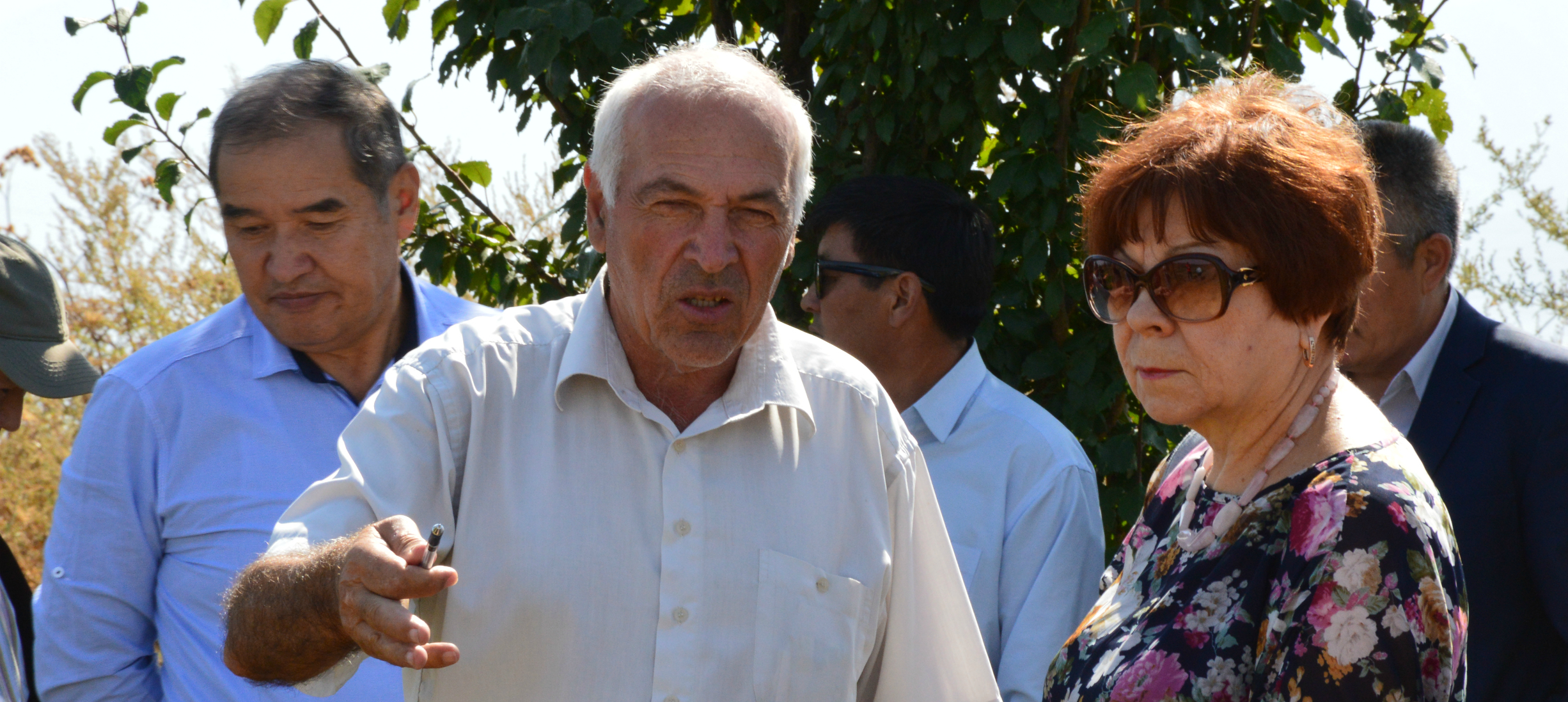
Shyryn owns one of 140 farms located in the Merke district of the Zhambyl region in Kazakhstan, where irrigation agriculture is the main source of income. Unfortunately, distribution and use of water resources has become a serious challenge for farmers in the region and a big reason Shyryn’s farm wasn’t producing the yield he had expected.
In Merke, water for irrigation comes, by way of a canal, from the Aspara River, which is shared by both Kazakhstan and Kyrgyzstan. Over the years, the water supply infrastructure has become obsolete and inefficient, with water losses increasing every year. To further complicate the situation, a 1948 regulation stipulating that 62 percent of the river water must go to Kazakhstan and 38 percent to Kyrgyzstan, which could was not measured resulting in disputes becoming a part of everyday life.
As Shyryn explains, the absence of equipment to monitor the water flow between the countries exacerbated tensions: “Distrust had been the main issue among community members. We always had to go to the Kyrgyz side to monitor water sharing. Despite this, we were never sure it was fair, as there was no equipment in place to verify it. So, conflicts always continued.”
However, in 2015 USAID financed CAREC’s project in Merke to encourage broad dialogue among the different stakeholders and find joint solutions to the urgent water issues. The project started with the creation of Small Basin Councils (SBC) on both sides of the river. An SBC is a representative body for key stakeholder groups, including water users’ associations, local communities, water management organizations, local governments, environmental authorities, and border control bodies. Each SBC has about 20 members, who are appointed by their respective stakeholder group.
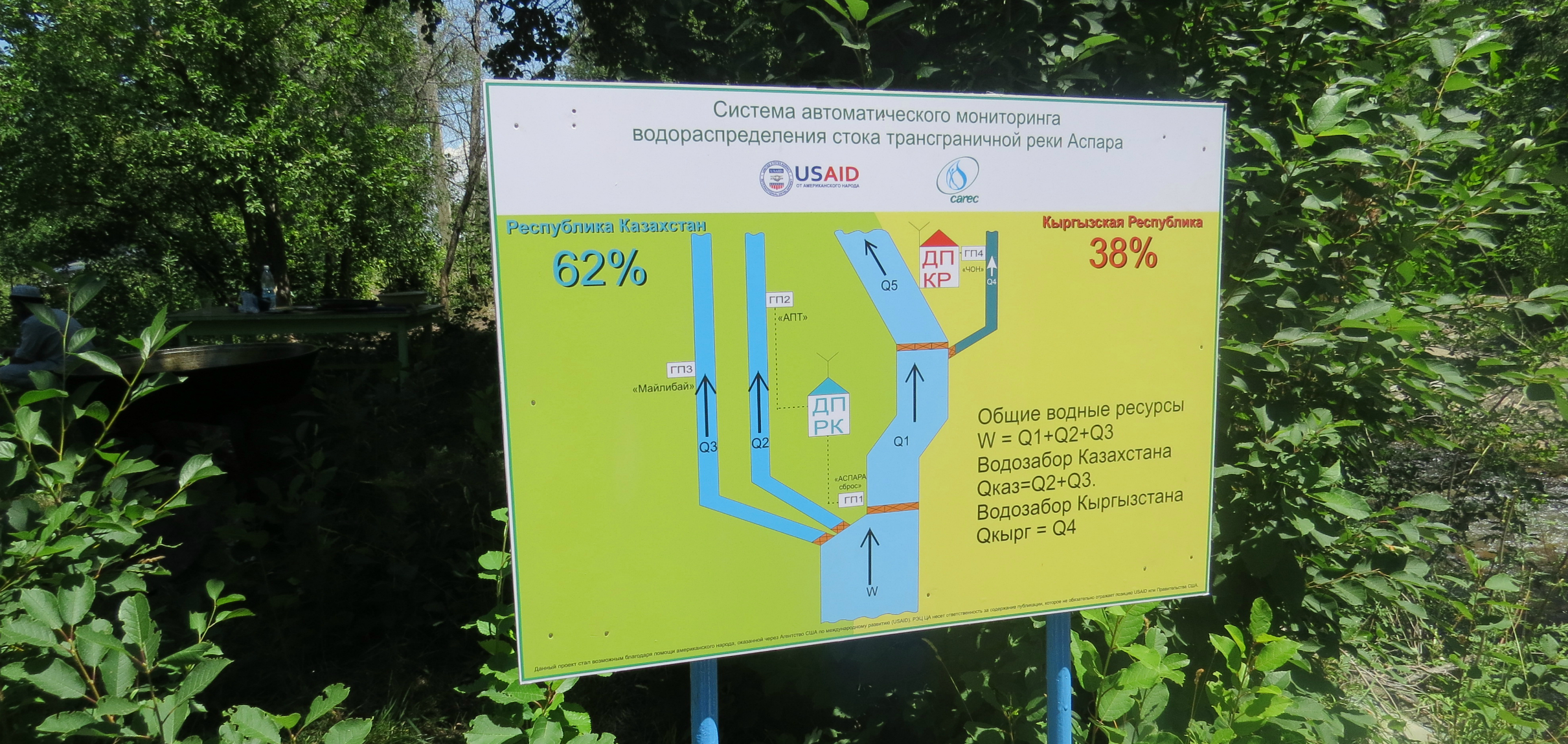
As a first step, the Small Basin Council advised that to reduce overall expenses and improve crops, the community badly needed a river management structure that would allow water to be shared fairly. As Shyryn remembers, “it was at the first session that people stopped accusing each other, sat at one table, and identified common problems.” This ultimately led the community to establish an integrated water management system.
With USAID’s support, the efforts and the needs of different partners and stakeholders were unified. The Norwegian Ministry of Climate and Environment and the Coca-Cola Company provided additional financial support to rehabilitate 15 flow meters; install electronic water- accounting devices, and train community members on efficient water resources management. New water metering equipment allowed the water to be fairly apportioned and delivered without delay, helping to alleviate transboundary disputes and saving water. The equipment also increased the economic efficiency of the community’s irrigated lands by reducing the cost of water and promoting better crop productivity.
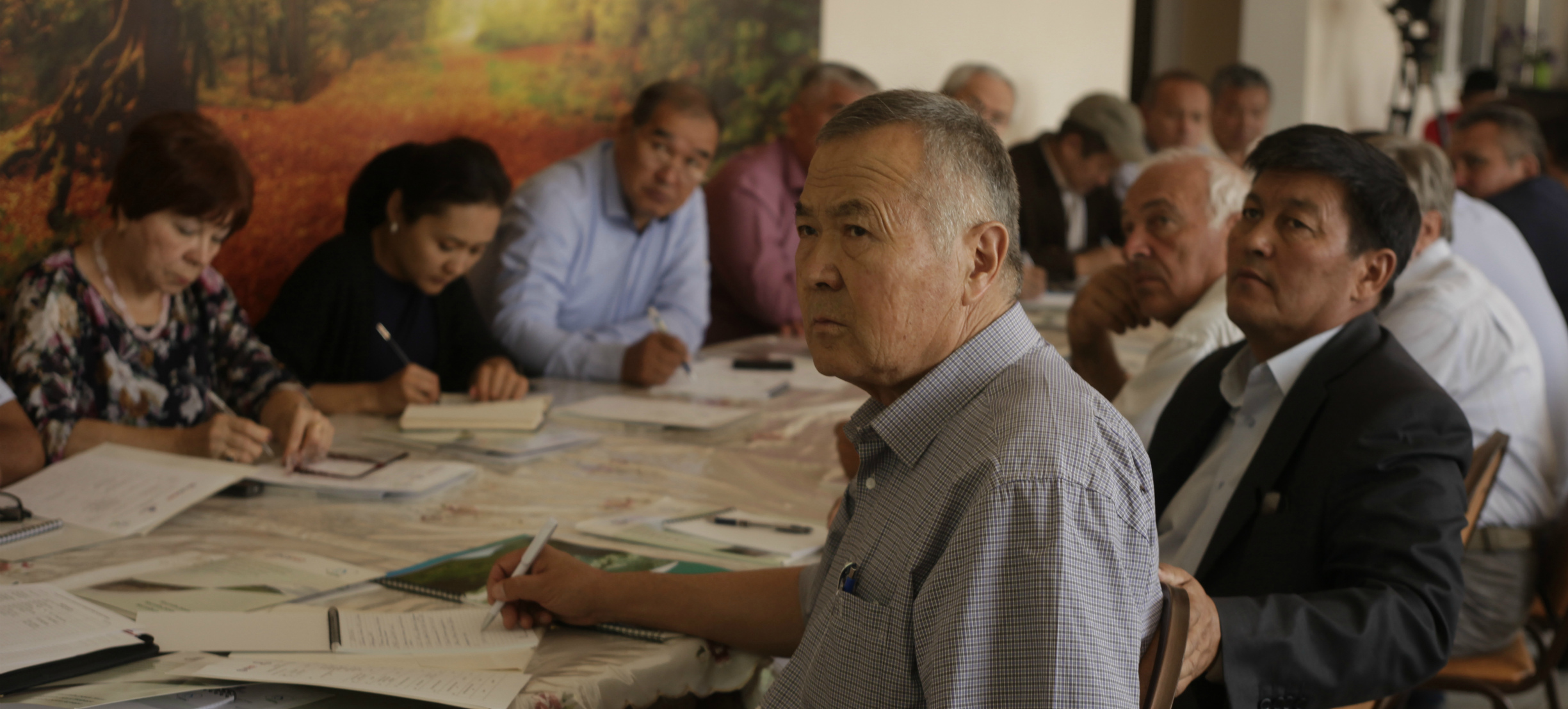
Community members, who now feel they are being well represented, have expressed interest in further enhancing the sustainability of the project with additional improvements, including the purchase of special drip irrigation systems for even bigger harvests.
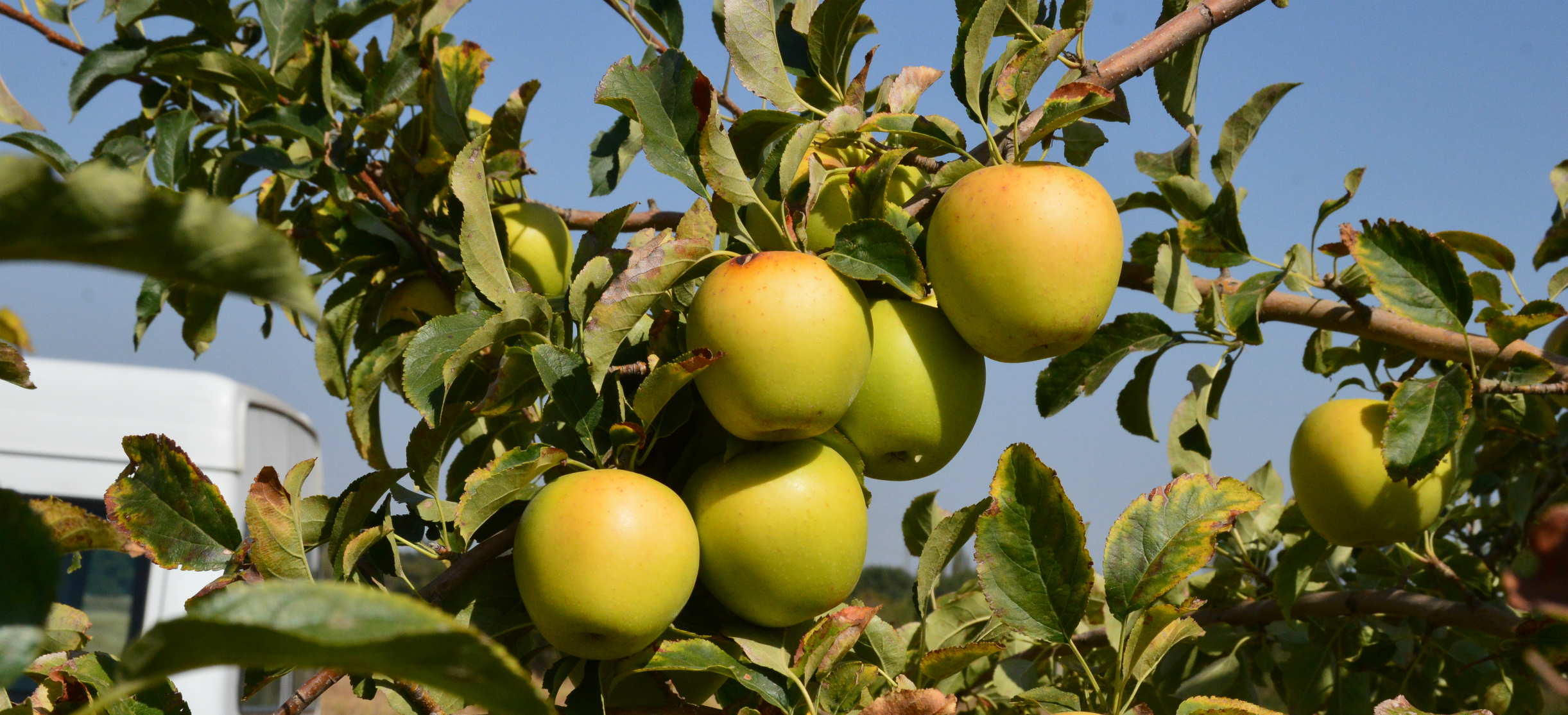
In 2017 community members elected him as Chair of the Small Basin Council in 2017. Reflecting on his experience, Shyryn noted: “I was able to increase my income by two folds. Water losses stopped and expenses were reduced. I can pay for the education of my children. Now we all work on the farm, getting 24-26 tons of apples per hectare; and it is not the limit. I have a lot of plans, and one of them is to purchase special equipment so I can get around 40 tons of harvest per hectare. As Chair of the Small Basin Council, I can share my experience with my neighbors and other community members and promote further cooperation and sustainability in the region. I personally believe that only water-saving technologies can reduce farmers’ expenses, guarantee a sustainable income, and improve the socio-economic conditions in the region.”

